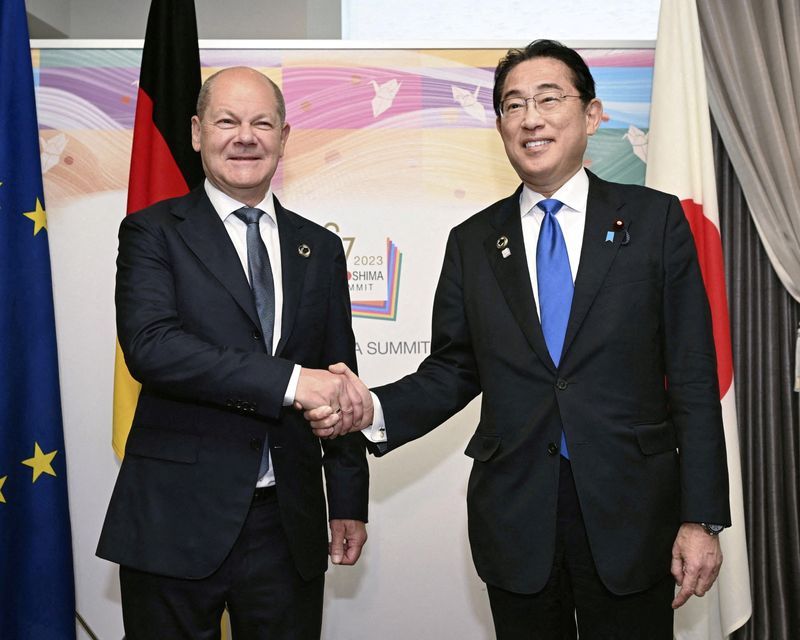By Sakura Murakami and Andreas Rinke
HIROSHIMA, Japan (Reuters) - Japan and Germany say it is time for a rethink of how some of the world's most powerful institutions - including the United Nations Security Council - deal with emerging countries.
Outreach to the so-called "Global South", shorthand for some low- and middle-income countries including India, has been a focus at this year's Group of Seven (G7) summit in Hiroshima.
The interest isn't just altruistic. The world's rich democracies are looking askance at China's heavy footprint across the developing world and worry about its sway over supply chains and critical minerals.
Some of China's lending has left developing countries "trapped in debt", U.S. Treasury Secretary Janet Yellen has said. China, which has lent hundreds of billions of dollars to build infrastructure in developing countries, has called those remarks "irresponsible" and said the United States should take practical action to help developing countries.
Japan and Germany have for years been pushing for a reform of the Security Council. Together with Brazil and India they have pressed for permanent seats.
That effort got a renewed push at the G7 on Saturday when Japan's Prime Minister Fumio Kishida and Brazil's President Luiz Inacio Lula da Silva met on the sidelines of the summit and agreed to work for reform at the Council as non-permanent members.
German Chancellor Olaf Scholz has said international organisations need to change as the world has.
"Any functioning international order must reflect the multipolar character of the world," he said on Monday in Berlin.
"The uni- or bipolar world of yesterday may have been easier to shape - at least for the powerful," he added. "But it is no longer the world we live in."
The initiative comes as Japan and other G7 members try to engage the Global South, as the G7 nations struggle to stay relevant amid growing Chinese influence in developing countries.
The G7's economic clout has also shrunk. The G7 economies accounted for 29.9% of global GDP in 2023, down from 50.7% in 1980, according to the International Monetary Fund.
Japan's Kishida has said his country's role is to bridge the gap between the G7 and the Global South in areas such as energy and food security.
Tokyo announced a new security aid programme this year, the Overseas Security Aid, which will provide military equipment to help developing countries bolster security with an eye on countering Chinese pressure, a Japanese official said.
